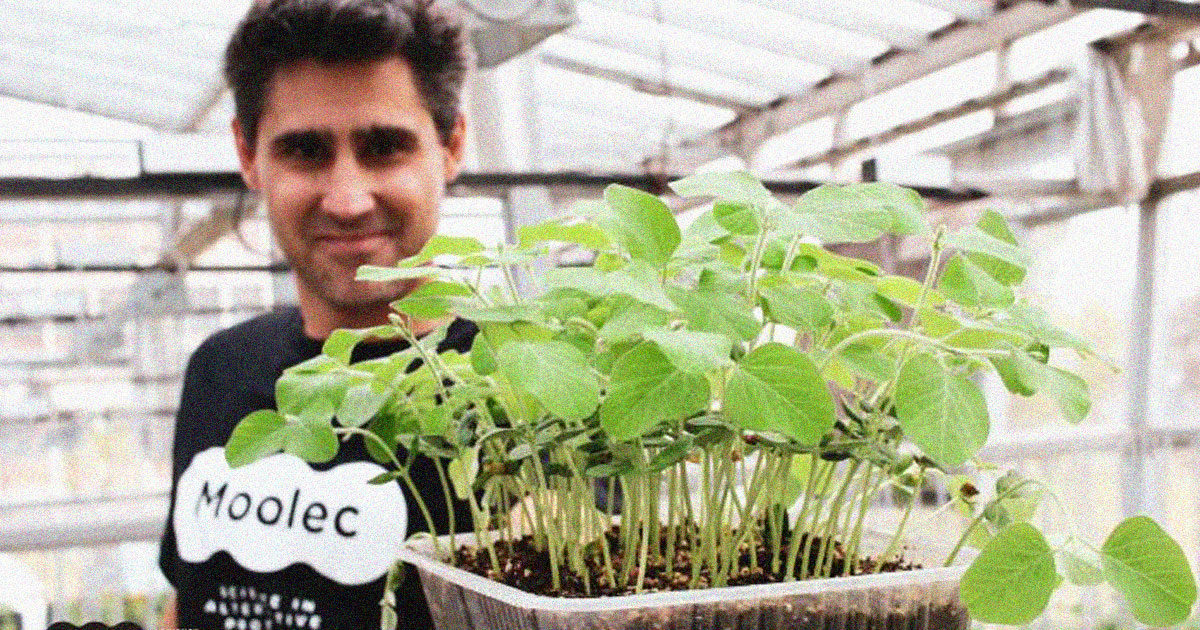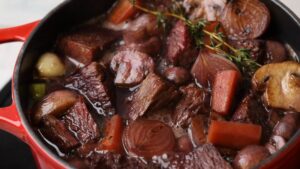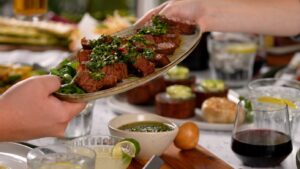
Por Contxto
January 3, 2024
Molecular protein company Moolec Science is pioneering a novel approach to sustainable food production by integrating pig genes into soybeans. This initiative, part of a broader effort to reduce meat consumption and its environmental impact, has led to soybeans expressing porcine proteins. Remarkably, a quarter of the soluble proteins in these modified soybeans were identifiable as pig-derived, achieved without factory farming pigs.
CEO Gastón Paladini highlights that these genetically modified soybeans not only have a pinker hue but also a meatier taste. However, the potential market acceptance and dinner table presence of these products is still uncertain. Moolec’s innovation is a part of the ongoing pursuit in the food industry to create plant-based meat substitutes that closely mimic the taste and texture of actual meat. Despite advancements, consumer skepticism remains a challenge, particularly regarding the flavor profile and texture.
Paladini notes that the plant-based industry’s growth has been limited by these factors, including cost. His strategy with Moolec’s ‘porky’ soybeans is not to replace meat entirely but to offer meat producers a cost-effective alternative by blending these soybeans into their products. This approach could potentially reduce costs and environmental impacts.
Moolec Science emerged from Bioceres Crop Solutions, which is also exploring other innovations like pea plants yielding beef proteins and safflowers producing milk coagulants. The broader goal is to revitalize the industry with these meat-like ingredients, but success in broader markets is yet to be seen. Challenges include regulatory hurdles, such as the European Union and UK’s strict GMO regulations. Despite these obstacles, Paladini remains hopeful about embracing scientific solutions for sustainable food production.

Por Contxto
February 26, 2024

Por Contxto
January 25, 2024
Por Contxto
January 4, 2024